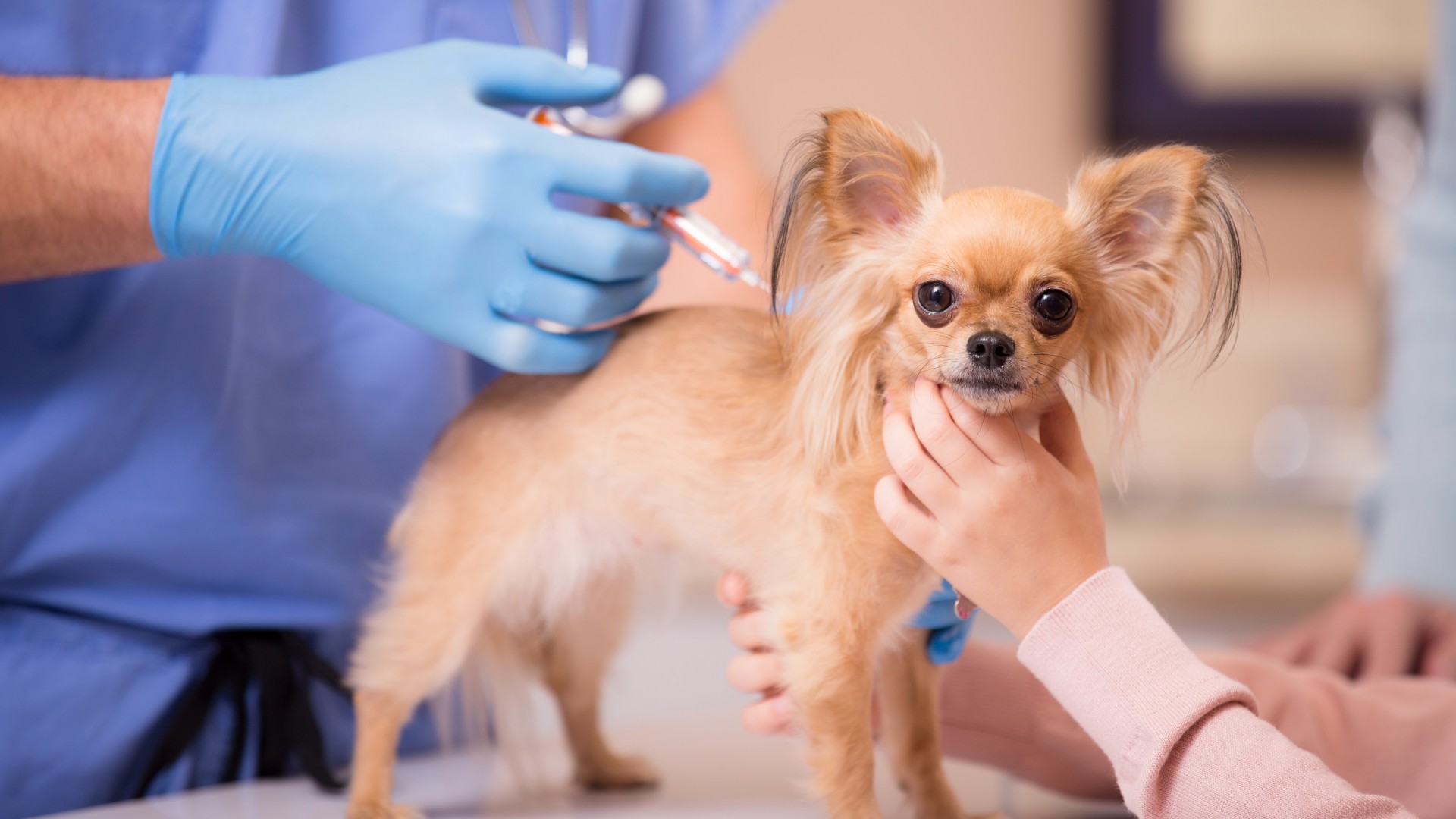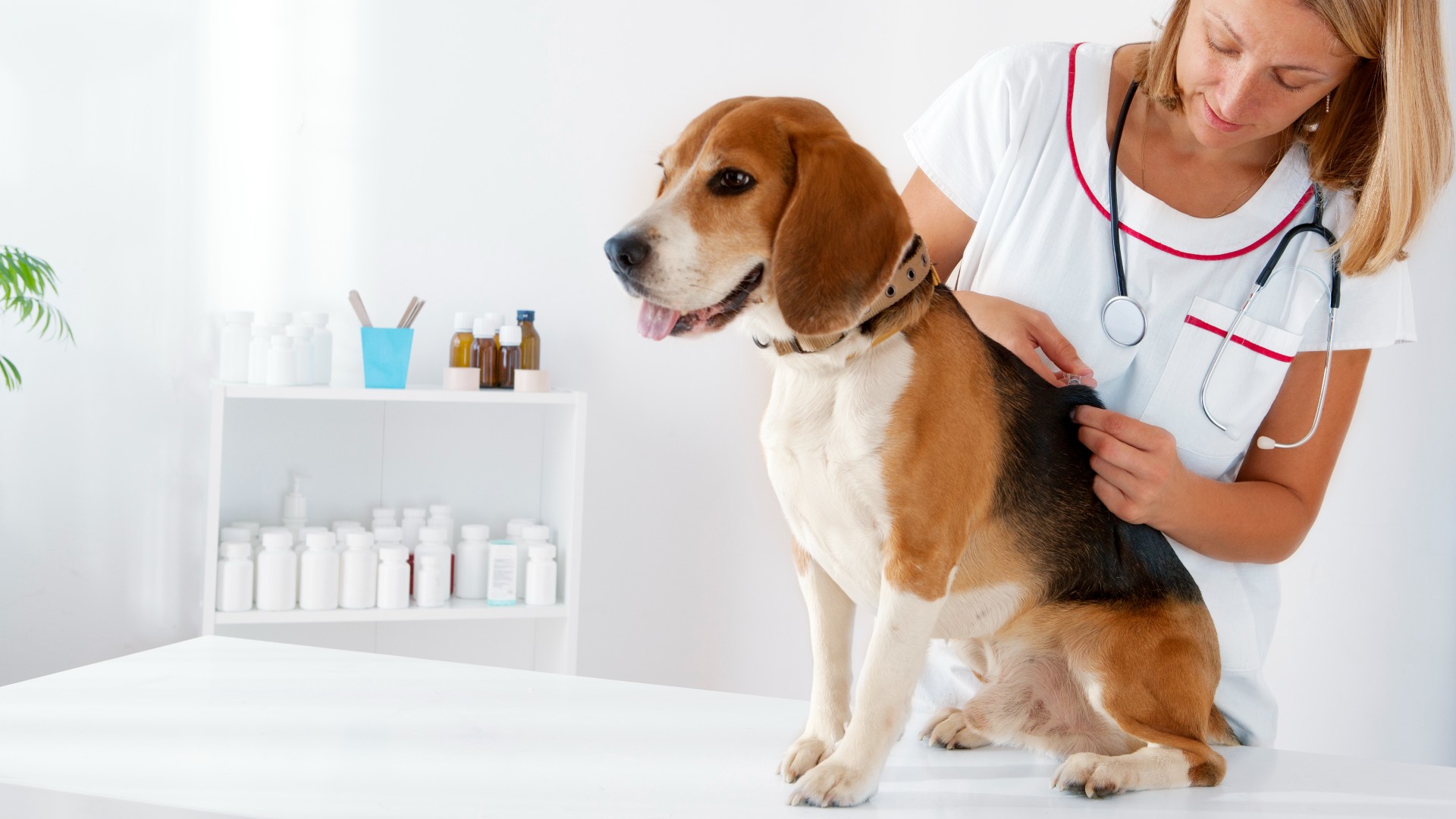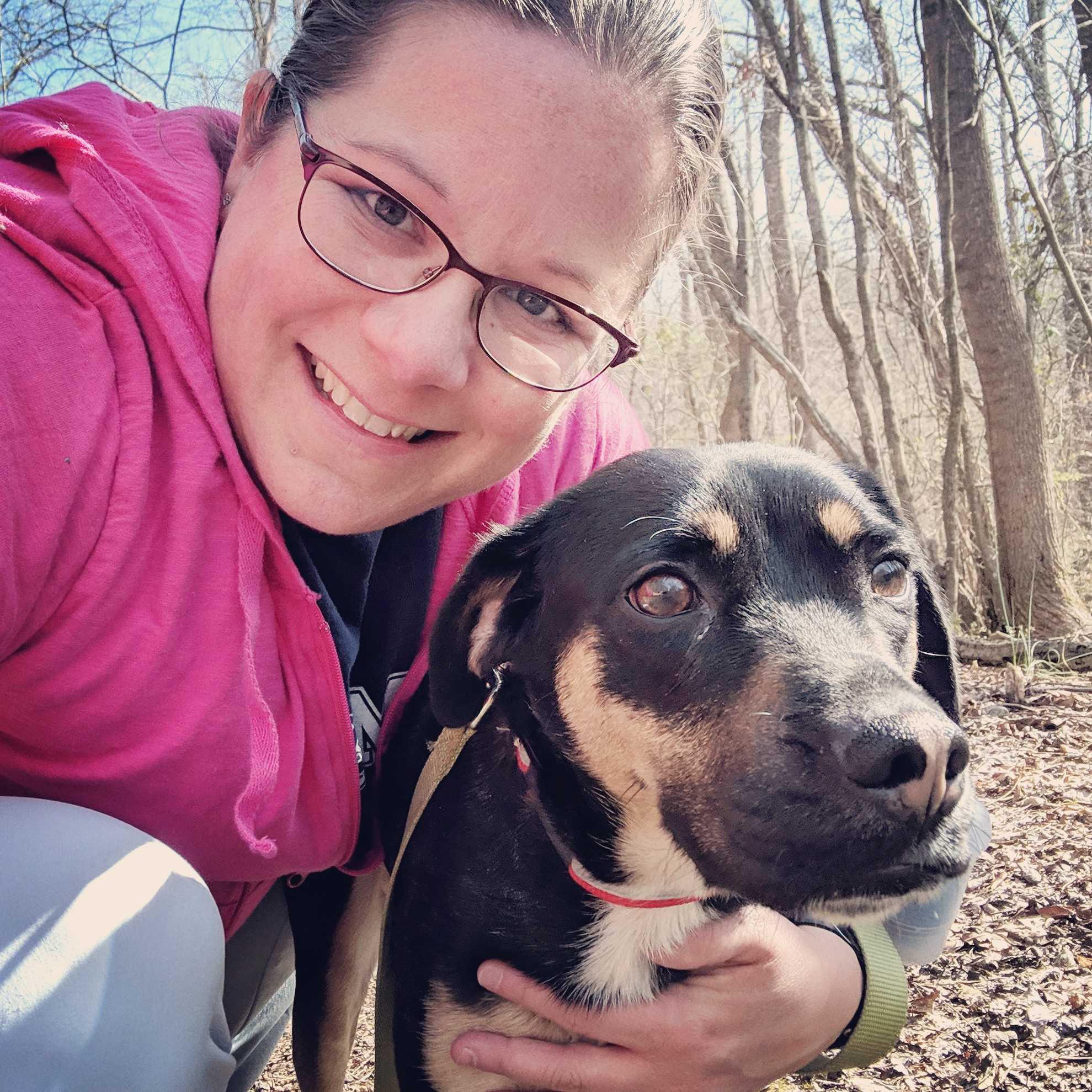How often do dogs need rabies shots?
How often do dogs need rabies shots? The answer to that question depends on several factors.

How often do dogs need rabies shots? That depends on two things: the vaccine manufacturer’s recommendations and local government regulations. Based on those factors, your veterinarian will determine how often your dog should be vaccinated, and when their next rabies vaccine is due.
Keep in mind that there’s more to responsible dog ownership than just a rabies vaccine. Your dog will require a number of other vaccines, in addition to year-round parasite prevention, regular wellness exams, and treatment of any illnesses or injuries that arise. Having the best pet insurance can minimize the financial costs associated with dog ownership, helping you ensure that your dog receives the best possible veterinary care.
- How often do cats need rabies shots?
- "My dog is dying and I can't afford the vet." How to get your dog the care they need...
- How to give a dog insulin
Can my dog go without a rabies shot?
Vaccines, including rabies vaccination, play an important role in keeping our pets healthy. Each vaccine is given on a specific schedule, based on studies of how long the vaccine produces immunity. Delaying your dog’s recommended vaccines puts your dog at risk of infectious disease and, in the case of rabies vaccination, this lapse could prove fatal.
While all vaccines protect canine health, rabies vaccination also has legal implications. Because rabies is a fatal disease that can affect humans, there are a number of laws governing rabies vaccination and how to handle potential rabies exposures. If your dog has an altercation with a wild animal or an unvaccinated pet, for example, being overdue for rabies vaccination could result in a lengthy quarantine.
How long is a rabies vaccine good for in a dog?
Dogs should receive their first rabies vaccine at 14 weeks of age. This is typically given during a puppy vaccine visit, in which your dog may also receive other vaccine boosters. Read a vet’s guide to puppy shots for more information on puppy vaccinations.
A dog’s initial rabies vaccine is good for one year. A year later, you will return to your veterinarian for a booster rabies vaccine (along with an annual exam, other vaccines, etc.). Your dog’s second rabies vaccine may be good for either one or three years, depending on the vaccine manufacturer’s recommendations and local pet licensing requirements. (Three-year rabies vaccines in adult dogs are the norm, but some counties require annual vaccination.)
As for how to pay for the vaccine, you may be wondering, does pet insurance cover vaccines? It depends. Some pet insurance companies cover preventative care, including vaccines. Many policies, however, only provide coverage for illnesses and injuries. Research your pet insurance policy carefully, so there are no unexpected surprises when seeking veterinary care for your puppy.
What is the difference between a one-year and three-year rabies vaccine?

One-year rabies vaccines have undergone testing to demonstrate that they will produce immunity for a period of at least one year; therefore, they are given a one-year label. Three-year rabies vaccines have been shown to produce immunity for at least three years, allowing the manufacturer to use a three-year label.
In most cases, one-year and three-year rabies vaccines are nearly identical. They differ primarily in the extent of the clinical trials that the manufacturer performed, not the vaccine ingredients. In fact, many veterinary practices only stock three-year rabies vaccines for dogs. This three-year vaccine is valid for one year in dogs that are not vaccinated for rabies, or three years for dogs that are up-to-date on rabies vaccination.
Will it hurt a dog to get two rabies shots?
Because rabies is governed by legal requirements, it’s important to be able to prove your dog’s vaccination status. If your dog has had a rabies vaccine but you can’t find or obtain proof, you may need to have your dog revaccinated. You will be unable to get a new registration tag or license for your dog without proof of rabies vaccination.
In most cases, there is no significant risk associated with giving a rabies vaccine early. In fact, humans that are exposed to rabies are given four rabies vaccines over a period of just two weeks! However, it’s best to talk to your veterinarian if you have any concerns about giving a rabies vaccine ahead of schedule.
Rabies vaccines, like any other vaccine, are associated with a small risk of side effects. Most vaccine-associated effects are mild, including lethargy in dogs or pain at the injection site. Less commonly, dogs may have an allergic reaction, characterized by hives and redness or swelling of the face. Call your veterinarian if you suspect that your dog may be having a vaccine reaction. There is no evidence to suggest that giving a rabies vaccine before its due date increases your dog’s risk of a vaccine reaction.
Summary
How often do dogs need rabies shots? It depends! In most cases, a dog’s first rabies vaccine is valid for one year, and subsequent rabies vaccines are good for three years each. However, this can vary, depending on vaccine labeling and local laws. Talk to your veterinarian to determine exactly when your dog’s next vaccine is due, so you don’t run the risk of your dog having an expired rabies vaccine.
PetsRadar Newsletter
Get the best advice, tips and top tech for your beloved Pets
Dr. Barnette is a graduate of the University of Florida, where she received both her B.S. in Zoology and her Doctor of Veterinary Medicine (DVM). She has 15 years of clinical experience as a small animal veterinarian, treating dogs, cats, and occasional exotic patients. She now works as a freelance veterinary writer, creating educational content for veterinarians, veterinary team members, and dedicated pet owners. Dr. Barnette lives in southwest Florida with her husband and daughter (plus two cats, a dog, and a rescued dove!) and enjoys kayaking, biking, and hiking. Learn more about Dr. Barnette at www.linkedin.com/in/catherinebarnette.

